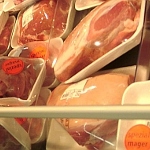You are here:
Foodborne disease outbreaks

Food infections and poisoning (intoxications) in humans can be caused by a variety of bacterial, viral and parasitic pathogens or the toxins formed by them. They usually lead to gastro-intestinal complaints which often have a mild, self-limiting course but which can also produce severe, sometimes even life-threatening, symptoms.
To prevent foodborne diseases, compliance with general hygiene rules when preparing foods is essential, even in private households. Various press releases and consumer tips, which can also be downloaded under the heading “Documents”, explain their meaning in easily understandable language.
The suspicion of a foodborne disease outbreak exists when two or more people fall ill after eating the same food. Foodborne disease outbreaks can occur as localised events in community institutions or private households when ready-to-eat foods become contaminated through handling errors or the use of contaminated ingredients. After eating the food, this can lead to the sudden occurrence of several cases of illness. Localised foodborne outbreaks are therefore usually recognised quickly, and reported to and investigated by the responsible authorities. To support regional veterinary and food control authorities, the BfR has published guidelines for the investigation into outbreaks along the food chain.
The BfR has published a leaflet on how to prevent foodborne disease outbreaks in curative and nursing institutions, such as hospitals, nursing homes and childcare centres. It is intended to support the responsible staff in institutions of this kind in the implementation of the legal provisions. The leaflet “Safe Food in Community Institutions” can be downloaded under the heading “Publications - Leaflets for other professional groups”.
Diffuse, supraregional foodborne outbreaks are much more difficult to recognise on the other hand. These can occur if foods are contaminated right at the beginning of the food chain during food production or processing, for example, prior to distribution and marketing over large areas. Examples of this are the EHEC outbreak in Germany in 2011 and a norovirus outbreak in eastern Germany in 2012 which occurred after the consumption of foods containing strawberries.
Information
(7)| Date | Title | Size |
|---|---|---|
|
08.08.2014 BfR Information Nr. 030/2014
|
Foods implicated in disease outbreaks in Germany in 2013 |
34.4 KB
|
|
02.08.2013 BfR Information Nr. 019/2013
|
Foods implicated in disease outbreaks in Germany in 2012 |
34.1 KB
|
|
19.09.2012 BfR Information Nr. 035/2012
|
Food involved in disease outbreaks in Germany in 2011 |
43.3 KB
|
|
26.09.2011 BfR Information No. 041/2011
|
Food involved in disease outbreaks in Germany in 2010 |
39.0 KB
|
|
27.07.2010 BfR Information No. 033/2010
|
Food involved in disease outbreaks in Germany in 2009 |
33.2 KB
|
|
31.05.2009 BfR Information No. 033/2009
|
Food involved in disease outbreaks in Germany in 2008 |
29.9 KB
|
|
31.03.2009 BfR Information No. 010/2009
|
Food involved in disease outbreaks in Germany in 2007 |
27.2 KB
|
Opinion
(3)| Date | Title | Size |
|---|---|---|
|
28.11.2019 BfR Opinion No 047/2019
|
Comparing the genetic material of pathogens to explain disease outbreaks |
245.2 KB
|
|
05.07.2016 BfR Opinion No 019/2016 upon consultation with the RKI
|
Possible health risks from contaminated foods in hospital kitchens can be minimised through suitable measures |
31.8 KB
|
|
06.10.2012 BfR Opinion No. 038/2012
|
Tenacity (resistance) of noroviruses in strawberry compote |
75.1 KB
|
Publications - Brochures
(1)| Date | Title | Size |
|---|---|---|
|
22.12.2020 Information
|
Safe Food - Especially Vulnerable Groups in Community Institutions |
718.6 KB
|
Press releases
(18)Communication
(2)| Date | Title | Size |
|---|---|---|
|
14.05.2020 BfR Communication No. 022/2020
|
Next-generation sequencing: opportunities and limitations for human and animal health protection |
237.4 KB
|
|
13.12.2016 BfR Communication No. 035 /2016
|
EFSA and BfR to work jointly on global food safety tools |
23.8 KB
|
